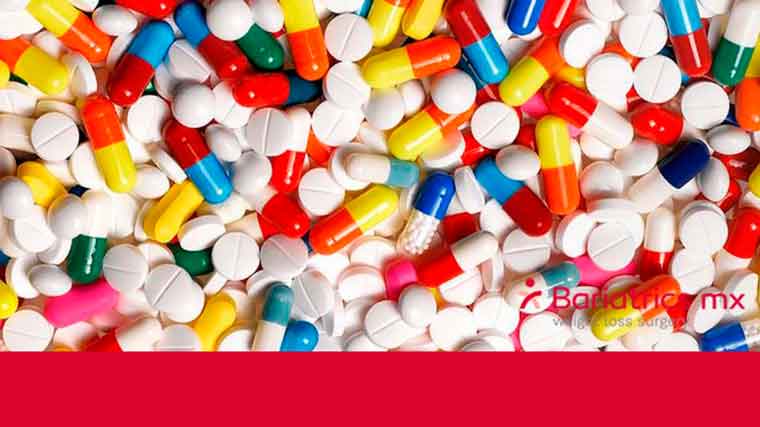Managing pain after gastric sleeve surgery
Going through gastric sleeve surgery is a big step toward a healthier lifestyle, but let’s be real—it’s not without its challenges, and managing pain after surgery is one of them. Knowing what pain medications are safe for you is key to getting through recovery as comfortably as possible. I’ll walk you through the safe options, what to avoid, and some alternative methods that can help you manage pain without compromising your healing process.
Why picking the right pain medication is crucial
After surgery, your digestive system is more delicate, and not all pain meds are safe to use. Some common pain relievers can cause issues like stomach irritation, increased bleeding risk, or even harm the surgical site. That’s why it’s so important to know which medications are safe and effective so you can stay on track with your recovery.
Safe pain medications you can take
When it comes to pain relief after gastric sleeve surgery, these are generally considered the safer bets:
Acetaminophen (Tylenol)
This is usually the go-to option. It’s easy on the stomach and does a good job of tackling mild to moderate pain. Unlike NSAIDs, it doesn’t carry the risk of stomach irritation or ulcers.
Liquid or crushable medications
Because of the changes to your digestive system, pills that are too large or slow-release forms might not be absorbed properly. Liquid forms or medications you can crush and mix with water can be a better choice. Always check with your doctor before changing how you take your meds.
Short-term prescription options
Sometimes, doctors might prescribe stronger pain relief like opioids, but these are generally for short-term use only. They can help with severe pain but be mindful of the risks, like constipation or dependency, which can be more pronounced after surgery.
Medications to steer clear of
Here’s where you need to be careful. Not all painkillers are safe after gastric sleeve surgery:
NSAIDs (like ibuprofen, aspirin, naproxen)
These are usually a no-go. They can irritate the stomach lining and increase the risk of bleeding—definitely not what you want when your digestive system is healing.
Extended-release or coated pills
These might sound convenient, but they can be tricky after surgery because your body might not absorb them correctly, making them less effective or even problematic.
Medications with high sugar content
Some liquid pain relievers or chewables can be packed with sugar, which isn’t great post-surgery. This can lead to what’s known as dumping syndrome, where food moves too quickly through your system, causing nausea and discomfort.
Natural ways and extra tips for pain relief
If you’re open to trying some natural alternatives, or just looking for ways to ease discomfort beyond medications, here are a few ideas:
Heat packs
A warm compress can be soothing on sore muscles. Just be sure to keep it away from your incision sites.
Gentle activity
While you should definitely take it easy, light movement like short walks can help with circulation and might ease some of the pain.
Mindfulness and relaxation techniques
Stress can make pain worse, so try practices like deep breathing or meditation. They can help distract you and reduce overall discomfort.
3 Helpful tips for managing pain after surgery
- Stay hydrated: Keeping yourself well-hydrated is a small but effective way to help manage pain. Just remember to take small sips to avoid overwhelming your stomach.
- Stick to your post-op plan: Following the guidelines from your surgeon about diet, activity, and medications will go a long way in keeping your recovery on track and minimizing pain.
- Watch for side effects: If you notice any side effects from your medications—like nausea, dizziness, or anything else that feels off—get in touch with your healthcare provider. It’s always better to address issues early on.
Frequently asked questions
How long will the pain last after surgery?
Pain varies from person to person, but typically, the worst of it is in the first few days. Most people feel significantly better by the second or third week.
Is ibuprofen safe to take?
Unfortunately, no. It’s best to avoid ibuprofen and other NSAIDs because of their potential to irritate your stomach and increase bleeding risk. Stick with acetaminophen or follow your doctor’s specific recommendations.
What if my pain meds aren’t working?
Don’t tough it out—reach out to your doctor. They may adjust your dose or suggest other ways to help manage your pain.
Are there natural supplements that can help?
Some people find relief with supplements like turmeric or ginger, which have anti-inflammatory properties. Just make sure to check with your healthcare provider before starting anything new.
Getting the pain management right for your recovery
Pain management is a key part of your recovery journey after gastric sleeve surgery. Picking the right medications and incorporating some of these alternative tips can help you manage your discomfort effectively. Remember, you’re not alone in this—keep your healthcare team in the loop and don’t hesitate to reach out if something doesn’t feel right.









